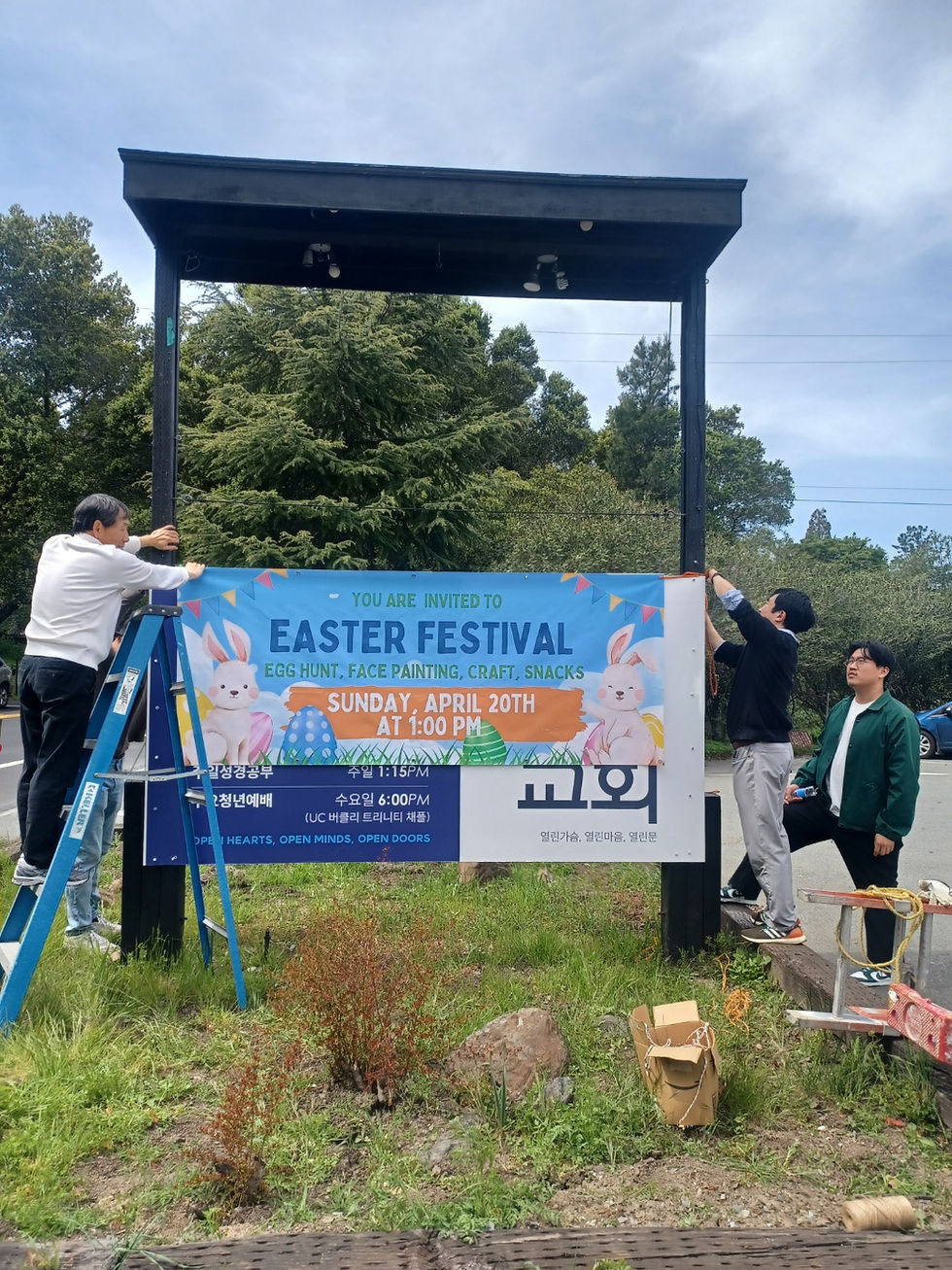Numbers 11:10–23, Tuesday, April 8, 2025
- 열린교회BKUMC
- 5일 전
- 3분 분량

Moses heard the people of every family wailing at the entrance to their tents. The Lord became exceedingly angry, and Moses was troubled.11 He asked the Lord, “Why have you brought this trouble on your servant? What have I done to displease you that you put the burden of all these people on me?” (Numbers 11:10-11 )
As the Israelites began their full-scale journey through the wilderness, their biggest concern was how to secure food and water each day. It was a basic, yet urgent problem, intensified by the harsh conditions of the desert. Though they had carried emergency rations, these were meant only for emergencies. Very quickly, dissatisfaction erupted among the people.
Today’s passage shows that even though manna came down from heaven daily, providing food, the people’s dissatisfaction over not having meat was expressed as "wailing." Despite the miraculous provision, rather than rejoicing, the people filled their tents with cries—and this deeply angered the Lord. Moses, in turn, became overwhelmed with worry.
From God’s perspective, the situation was outrageous; from Moses’ point of view, it was deeply distressing. Moses directly confronts God with the burden he feels: "Why have you brought this trouble on your servant?" His anguish stems from carrying the weight of responsibility for the entire people all by himself.
For anyone facing a serious issue, the responsibility to solve it brings immense pressure. Systems are created precisely to distribute such responsibilities and handle matters efficiently. But it seems the wilderness system hadn’t kicked in yet. Though the text mentions seventy elders and leaders over thousands, it appears Moses was not yet in a position to share his burdens with them. There wasn’t a clear structure for who was responsible for what. Even if a system is well-organized, without clear guidelines and responsibilities, everything remains up in the air.
God tells Moses to gather the seventy elders together. This was to address both Moses’ complaint and the people’s wailing. And then, God promises to give them so much meat that they would get sick of it.
In response to grumbling and complaints, God answers with a measure that borders on overwhelming. If He was going to give them what they wanted, why was God angry, and why did Moses pour out his frustration?
The nature of any organization or community is such that when responsibilities are unclear, no one takes ownership. The people crying in their tents would have directed their complaints to Moses. In turn, Moses directed his grievances to God. This chain reveals the hardship carried by those in leadership.
Today, we see global unrest stemming from U.S. tariffs. In an effort to improve government efficiency, federal employees are being laid off and departments downsized—saving costs, according to some reports. But this has also sparked unrest, such as the "Hands Off" protests. While relying more on AI and technology to replace human labor might seem innovative, for those who lose their jobs, it brings profound suffering.
As people lose income, they can't spend. When spending stops, other people’s incomes are affected. This breaks the chain of economic flow and threatens to collapse the structure holding society together. Inflation is rising, and the anxiety of such uncertainty psychologically suppresses consumption.
Historians and economists are scrambling to analyze why these things are happening and where they originate. But for the average person simply trying to live day by day, it’s overwhelming. People form their own opinions based on the news they consume. If that news leans toward extreme left or right ideologies, it can breed hatred—blaming a particular nation, ethnic group, political party, or immigrants with no solid basis.
Solving complaints begins with the tears and sighs of those carrying responsibility. If we keep insisting, “The problem isn’t me, it’s them,” we can never confront the real issue.
The book of Numbers doesn’t shy away from the problems that arise as the 2 million Israelites start their wilderness life. The people weren’t just hungry—they were crying out because they wanted meat. Moses felt the pressure and brought his complaint to God. Rather than avoiding the issue, he stood before God with what he felt and what he saw. That’s how real solutions begin—not with someone else’s opinion, but with honestly bringing our burdens to God.
Reflection
Do you feel overwhelmed by anxiety right now? Or do you sense more expectation and hope?
Intercessory Prayer
Please pray for Yeolin Church. Pray that it becomes a community that reflects the light and salt of the world, testifying to the gospel and fulfilling God’s Kingdom.
We are preparing for our Easter Egg Hunt event. Please pray for it.
Please pray for those who are ill. Especially lift up Elder Park Jung-ja for a swift and full recovery.
Comments